Conditions that cardiac rehab can help
If you’ve recently been diagnosed with a heart problem or are recovering from a cardiac event, cardiac rehab could be the next step in your recovery. A comprehensive rehabilitation program can help you manage or recover from conditions and procedures such as:
- Coronary angioplasty
- Coronary artery disease (CAD)
- Coronary artery bypass surgery (CABG)
- Coronary stenting
- Heart attack
- Heart failure
- Heart transplant
- Heart valve repair or replacement surgery
- Peripheral artery disease (PAD)
- Surgery to implant an LVAD
Benefits of cardiac rehab
There are many benefits of cardiac rehabilitation, with a focus on improving your quality of life. Most importantly, completing a cardiac rehab program improves your chances of surviving heart disease. It also reduces your chances of returning to the hospital for another heart issue and can reduce your healthcare costs in the years to come.
Additionally, cardiac rehab can give you and your family peace of mind so that you can take steps to prevent another cardiac event.
While cardiac rehab is a commonly used program for many people who have experienced certain heart events or have certain heart conditions, it may not have the same benefit for people with more severe health problems. Your doctor will explain if cardiac rehab is right for you based on your condition and other health factors.
Other benefits of cardiac rehab include:
- Boosting your energy and strength
- Developing coping and stress reduction skills
- Feeling better physically and psychologically
- Finding social and emotional support with other people who also experience heart problems
- Helping you get back to your daily activities
- Improving your mental health
- Increasing your self-confidence
- Making progress on new lifestyle changes, such as losing weight, lowering high cholesterol, managing high blood pressure and quitting smoking
- Relieving symptoms of heart disease, such as chest pain
- Strengthening your heart with gentle exercise
- Understanding your new medication regime
What to expect during cardiac rehabilitation
Cardiac rehabilitation works to ensure recovery for your entire self—physical, mental and spiritual. In addition to physical health issues, you may find yourself experiencing feelings of depression, anxiety or isolation because your loved ones are unable to relate to or understand what you’re going through.
That’s why our program has three components:
- Exercise
- Education
- Stress management
Cardiac rehab is carefully designed to accommodate your needs, physical capabilities, and interests. Your rehab team includes physicians, nurses, exercise physiologists, physical therapists, counselors, dietitians and chaplains working together to coordinate care—at your pace.
You will typically spend up to 12 weeks in cardiac rehabilitation, attending three sessions per week. The length of your program may depend upon your goals, the progress of your recovery or your physician’s recommendation.
While everyone’s program will be slightly different, here’s what you can expect in cardiac rehab.
Exercise
You will receive exercise training in a safe and monitored environment, so you feel confident about returning to your daily activities. During your activity sessions, the cardiac rehab team will monitor you with an electrocardiograph (ECG) telemetry unit.
An ECG will inform them how your heart reacts and adapts to activity. You'll also learn to take your pulse and exercise to a level that suits your recovery journey.
Cardiac rehab will also teach you how to safely progress your exercise over time, including how to safely exercise on your own once you have completed the program.
Education
Your team will teach you about heart-healthy living and provide counseling that can help you follow through on your goals. Topics covered may include:
- Heart-healthy eating and other nutritional counseling
- Managing your blood pressure, blood sugar and cholesterol
- Quitting smoking
- Weight loss strategies
Stress management
This aspect of the program is designed to improve your coping skills and help you develop a support system. Your counseling team provides education and training on techniques to lower stress, such as meditation, breathing exercises and more. You also have access to support groups to meet people in similar situations as yours.Supervised exercise therapy for peripheral artery disease (PAD)
Just as exercise can help people recover from a heart attack, it can also help reduce leg pain and other issues caused by peripheral artery disease (PAD).
If you have PAD, you can access supervised exercise therapy through our cardiac rehabilitation programs with a referral from your healthcare provider. You work with an exercise professional who takes you through a series of exercises designed to increase your ability to walk longer distances with less pain.
The program also includes counseling to help you quit smoking and improve your diet with the ultimate goal of lowering your risk for additional heart and vascular conditions, such as heart attacks and strokes.
Support for your recovery and beyond
In addition to cardiac rehab, you have access to many other proven programs to improve your recovery after a major heart event or procedure.
- Keep Your Move in the Tube®: If you have had a sternotomy, this innovative approach to cardiac rehab teaches you how to perform load-bearing movements to avoid excess stress on the sternum. The program can help you regain your strength faster and often eliminates the need for skilled nursing care.
- Leap for Life®: Leap (Lifestyle Education Awareness Program) for Life offers wellness and disease prevention education for anyone at risk of cardiovascular disease and their families. The workshop provides practical information about exercise, diet, nutrition, stress management and medication management with the goal of reducing your risk for heart disease.
- The Return to Work Lab®: Your cardiac rehab team will initiate a heart-care plan using actual equipment and tools you would use when back on the job, so you’ll be fully prepared for every challenge.
- Safe Start: A modified version of our standard cardiac rehabilitation program, Safe Start offers an option if your insurance does not cover cardiac rehab. It allows you to receive many of the benefits of cardiac rehab in a shortened, self-pay format.
- Caring Hearts and Mended Hearts Programs: In the Caring Hearts and Mended Hearts programs, people who are past their own cardiac event volunteer to visit a patient before and after a procedure, offering empathy and support.
Find a location near you
Cardiac rehab is available through our locations across Central and North Texas. No matter where you received your initial care, we can help you find a cardiac rehab location that’s convenient to where you live or work.

Baylor Scott & White All Saints Medical Center - Fort Worth
1400 8th Ave , Fort Worth, TX, 76104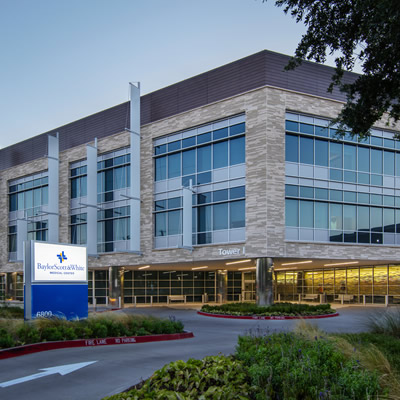
Baylor Scott & White Cardiac Rehabilitation - Rowlett
6800 Scenic Dr Tower 1, Ste 307, Rowlett, TX, 75088- Monday: 7:00 am - 4:00 pm
- Tuesday: 7:00 am - 4:00 pm
- Wednesday: 7:00 am - 4:00 pm
- Thursday: 7:00 am - 4:00 pm
- Friday: 7:00 am - 4:00 pm
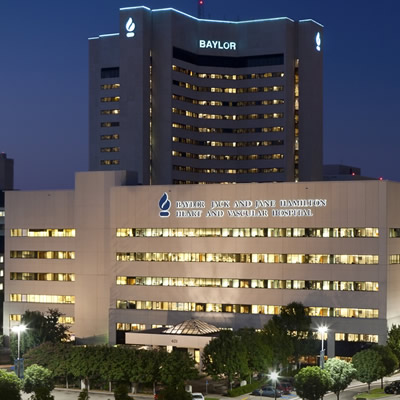
Baylor Scott & White Cardiology Consultants of Texas - Dallas
621 N Hall St Ste 500, Dallas, TX, 75226- Monday: 8:00 am - 5:00 pm
- Tuesday: 8:00 am - 5:00 pm
- Wednesday: 8:00 am - 5:00 pm
- Thursday: 8:00 am - 5:00 pm
- Friday: 8:00 am - 5:00 pm
- Monday: 8:30 am - 4:30 pm
- Tuesday: 8:30 am - 4:30 pm
- Wednesday: 8:30 am - 4:30 pm
- Thursday: 8:30 am - 4:30 pm
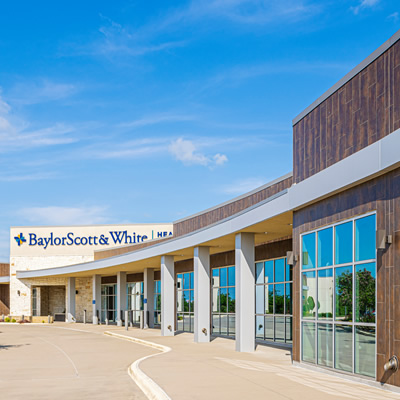
Baylor Scott & White Cardiology Consultants of Texas - Greenville
4400 Interstate 30 W Ste 300, Greenville, TX, 75402- Monday: 8:30 am - 5:00 pm
- Tuesday: 8:30 am - 5:00 pm
- Wednesday: 8:30 am - 5:00 pm
- Thursday: 8:30 am - 5:00 pm
- Friday: 8:30 am - 5:00 pm
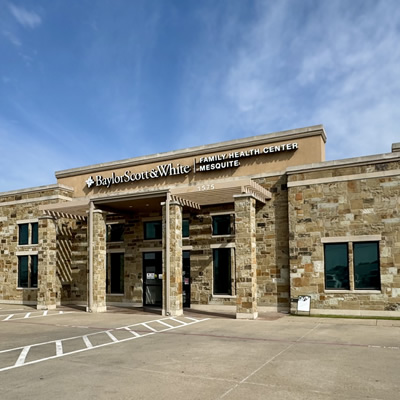
Baylor Scott & White Cardiology Consultants of Texas - Mesquite
1575 Interstate 30 , Mesquite, TX, 75150- Monday: 8:30 am - 5:00 pm
- Tuesday: 8:30 am - 5:00 pm
- Wednesday: 8:30 am - 5:00 pm
- Thursday: 8:30 am - 5:00 pm
- Friday: 8:30 am - 5:00 pm

Baylor Scott & White Cardiology Consultants of Texas - Midway
4431 E US Hwy 287 , Midlothian, TX, 76065- Monday: 8:00 am - 5:00 pm
- Tuesday: 8:00 am - 5:00 pm
- Wednesday: 8:00 am - 5:00 pm
- Thursday: 8:00 am - 5:00 pm
- Friday: 8:00 am - 5:00 pm

Baylor Scott & White Cardiology Consultants of Texas - Park Cities
9101 N Central Expy Ste 300C, Dallas, TX, 75231- Monday: 8:30 am - 5:00 pm
- Tuesday: 8:30 am - 5:00 pm
- Wednesday: 8:30 am - 5:00 pm
- Thursday: 8:30 am - 5:00 pm
- Friday: 8:30 am - 5:00 pm

Baylor Scott & White Cardiology Consultants of Texas - Red Oak
301 E Ovilla Rd Ste 100, Red Oak, TX, 75154- Monday: 8:00 am - 5:00 pm
- Tuesday: 8:00 am - 5:00 pm
- Wednesday: 8:00 am - 5:00 pm
- Thursday: 8:00 am - 5:00 pm
- Friday: 8:00 am - 5:00 pm
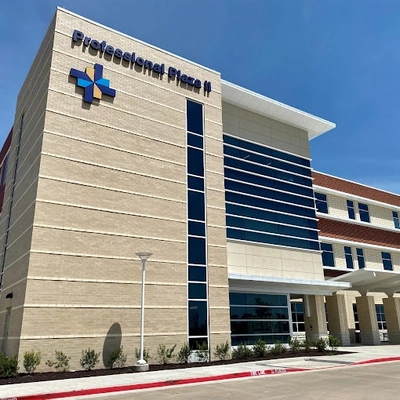
Baylor Scott & White Cardiology Consultants of Texas - Waxahachie
2360 N Interstate 35E Ste 110, Waxahachie, TX, 75165- Monday: 8:00 am - 5:00 pm
- Tuesday: 8:00 am - 5:00 pm
- Wednesday: 8:00 am - 5:00 pm
- Thursday: 8:00 am - 5:00 pm
- Friday: 8:00 am - 5:00 pm
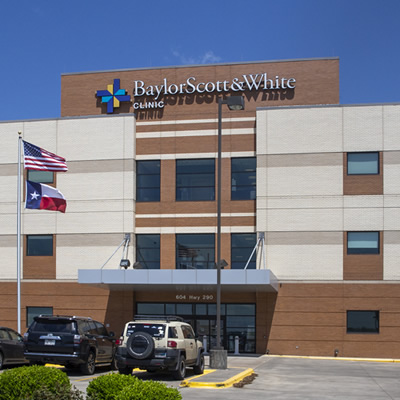
Baylor Scott & White Clinic - Brenham Hwy 290
604 US 290 , Brenham, TX, 77833- Monday: 7:00 am - 5:00 pm
- Tuesday: 7:00 am - 5:00 pm
- Wednesday: 7:00 am - 5:00 pm
- Thursday: 7:00 am - 7:00 pm
- Friday: 7:00 am - 5:00 pm
- Saturday: 8:00 am - 12:00 pm
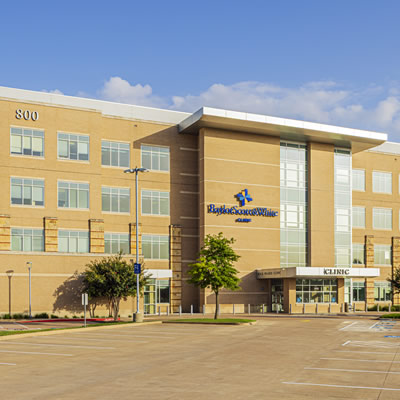
Baylor Scott & White Clinic - College Station Rock Prairie
800 Scott and White Dr , College Station, TX, 77845- Monday: 7:30 am - 5:00 pm
- Tuesday: 7:30 am - 5:00 pm
- Wednesday: 7:30 am - 5:00 pm
- Thursday: 7:30 am - 5:00 pm
- Friday: 7:30 am - 5:00 pm
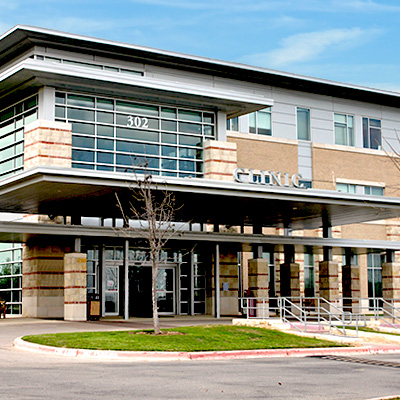
Baylor Scott & White Clinic - Round Rock 302 University
302 University Blvd , Round Rock, TX, 78665- Monday: 8:00 am - 5:00 pm
- Tuesday: 8:00 am - 5:00 pm
- Wednesday: 8:00 am - 5:00 pm
- Thursday: 8:00 am - 5:00 pm
- Friday: 8:00 am - 5:00 pm

Baylor Scott & White Heart and Vascular Hospital - Dallas
621 N Hall St , Dallas, TX, 75226
Baylor Scott & White Heart and Vascular Hospital - Fort Worth
1400 8th Ave Bldg A, 6th Floor, Fort Worth, TX, 76104
Baylor Scott & White Heart and Wellness Center - Irving
2001 N MacArthur Blvd Bldg I, Ste 140, Irving, TX, 75061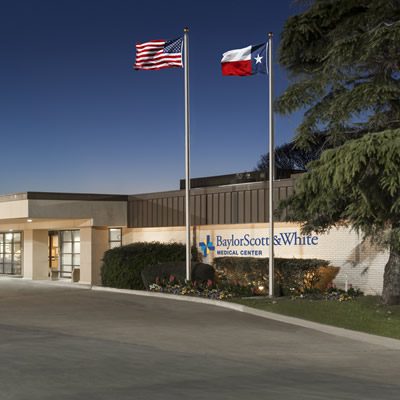
Baylor Scott & White Medical Center - Brenham
700 Medical Pkwy , Brenham, TX, 77833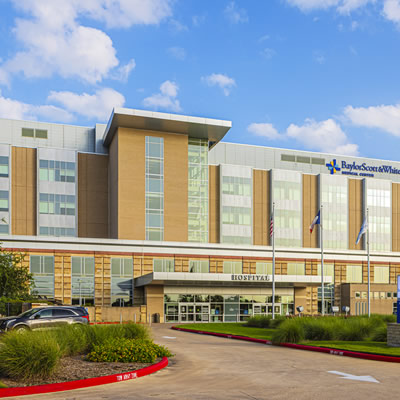
Baylor Scott & White Medical Center - College Station
700 Scott and White Dr , College Station, TX, 77845
Baylor Scott & White Medical Center - Grapevine
1650 W College St , Grapevine, TX, 76051
Baylor Scott & White Medical Center - Irving
1901 N MacArthur Blvd , Irving, TX, 75061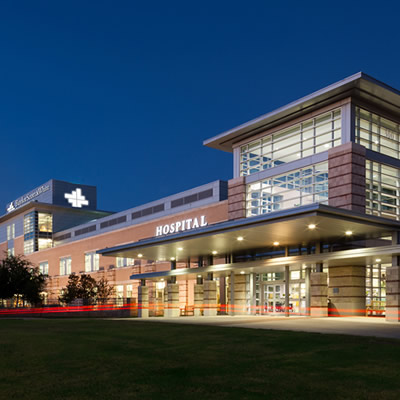
Baylor Scott & White Medical Center - Round Rock
300 University Blvd , Round Rock, TX, 78665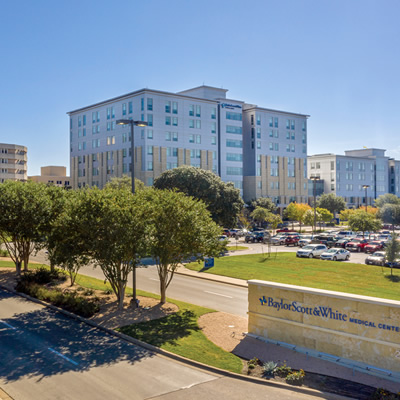
Baylor Scott & White Medical Center - Temple
2401 S 31st St , Temple, TX, 76508
Baylor Scott & White Medical Center - Waxahachie
2400 N Interstate 35E , Waxahachie, TX, 75165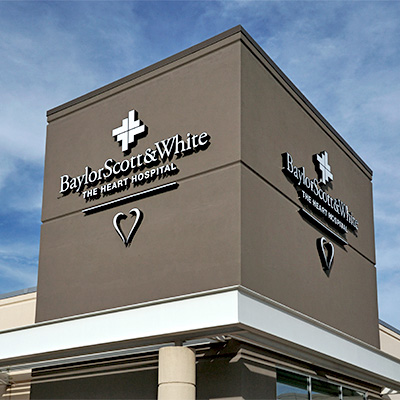
Baylor Scott & White The Heart Hospital - Denton
2801 S Mayhill Rd , Denton, TX, 76208
Baylor Scott & White The Heart Hospital - McKinney
5268 W University Dr , McKinney, TX, 75071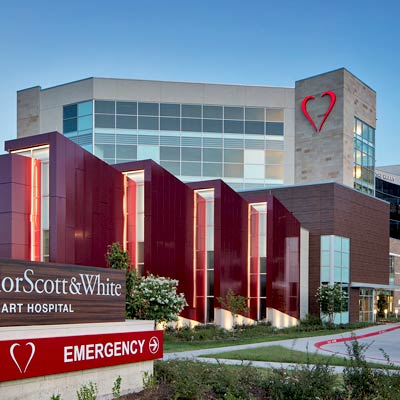
Baylor Scott & White The Heart Hospital - Plano
1100 Allied Dr , Plano, TX, 75093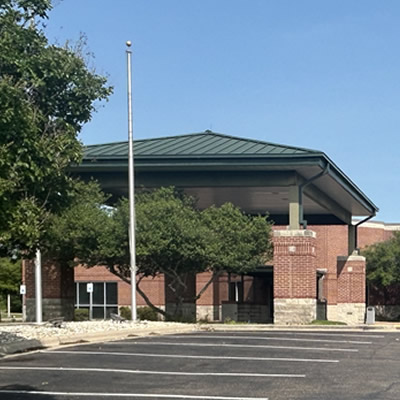
Ted & Sue Getterman Wellness Center
7300 Bosque Blvd , Waco, TX, 76710- Monday: 6:15 am - 6:00 pm
- Tuesday: 8:00 am - 6:00 pm
- Wednesday: 6:15 am - 6:00 pm
- Thursday: 8:00 am - 6:00 pm
- Friday: 6:15 am - 6:00 pm
Hours of Operation
Hours of Operation
Office Hours
Frequently asked questions
-
How do I get started with cardiac rehab?
Your provider or cardiologist can facilitate a referral to a cardiac rehab facility.
-
What is the cost of cardiac rehab?
Cardiac rehab is typically covered under insurance as long as you have a qualifying diagnosis. The specific program you are enrolling in can and will provide additional information about cost and coverage.
-
What kind of exercise equipment is used during cardiac rehab?
Typical machines can include (but are not limited to) a treadmill, stationary bike, arm ergometer, NuStep, elliptical, rowing machines, and various strength and resistance training equipment.
-
Do I do the same thing every session?
No, the cardiac rehab staff and exercise physiologists will work with you to determine an appropriate exercise prescription that will be continuously adjusted and tailored to you as you progress through your exercise sessions.
-
How soon after my event can I start?
This will be determined by your healthcare provider.